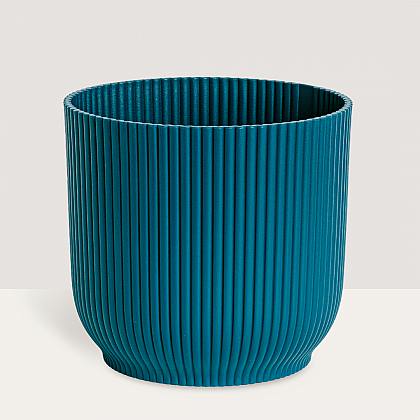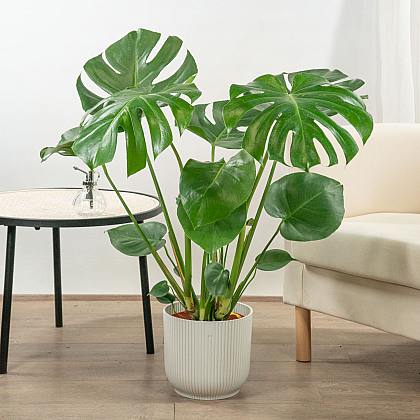Madagascar jasmine: The plant that you can't miss in your garden
Did you know that there is an exotic plant that can fill your garden with magic? This is Madagascar jasmine, a floral beauty that cannot be missing in any green...
Did you know that there is an exotic plant that can fill your garden with magic? This is Madagascar jasmine, a floral beauty that cannot be missing in any green space. Not only is this lovely shrub beautiful to look at, but it also has amazing benefits for our health and well-being. In addition, its care and cultivation are very simple, so anyone can enjoy its aromatic and relaxing properties. In this article, we'll discover how to use Madagascar jasmine in sustainable gardening, as well as creative ideas for decorating with this very special plant. We'll also unveil some curiosities and myths surrounding this wonderful plant. Get ready to delve into the fascinating world of Madagascar jasmine!
The Exotic Charm of Madagascar Jasmine
Madagascar jasmine is a plant that awakens exotic charm in any garden. With its fragrant white flowers, it transports our senses to faraway lands and makes us dream of tropical adventures. Its delicate aroma envelops us, creating a magical and relaxing atmosphere. I can't help but be captivated by its lush beauty and bright green leaves that seem to dance to the rhythm of the wind. It's as if Madagascar jasmine has the power to transport us to a tropical paradise every time we admire it. It doesn't matter if we grow it on a small balcony or in a large garden, this charming shrub will always add a special touch to our green space. Every time I pass by it, I can't help but stop and enjoy its exquisite perfume. It's as if I'm transported to a paradise island where life is simpler and more beautiful. Madagascar jasmine is truly a gem for nature lovers and those looking to bring a little piece of exotic charm into their home.
Health & Wellness Benefits
Madagascar jasmine is not only a beautiful plant, but it also offers numerous benefits for our health and well-being. Its delicate floral scent has relaxing properties that help reduce stress and anxiety. Imagine coming home after a long day at work and being greeted by the sweet perfume of Madagascar jasmine, you will instantly feel your worries melt away. In addition, the scent of jasmine has been shown to help improve sleep quality, allowing us to rest better at night and wake up refreshed and energized in the morning.
But that's not all, Madagascar jasmine also has therapeutic properties. Its flowers contain natural compounds that act as anti-inflammatories and analgesics, relieving muscle and joint pain. It has even been traditionally used in herbal medicine to treat respiratory problems such as coughs and colds.
In addition, Madagascar jasmine is an antioxidant-rich plant, which means it can help fight free radicals in our body and prevent premature skin aging. Who doesn't want to look younger and more radiant?
In short, having Madagascar jasmine in your garden will not only give you an exotic and enchanting touch, but it will also provide benefits for your health and well-being. So don't hesitate to include this wonderful plant in your green space and enjoy all its positive effects.
Care and cultivation of Madagascar jasmine
Caring for and growing Madagascar jasmine is a rewarding task that will allow you to enjoy its exotic beauty in your own garden. This plant, scientifically known as Stephanotis floribunda, requires certain care to grow and bloom properly. First and foremost, it's important to provide it with well-drained, nutrient-rich soil. Be sure to water it regularly, keeping the soil moist but not waterlogging. Also, Madagascar jasmine prefers places with plenty of direct sunlight, so you should place it in a sunny area of your garden. Another recommendation is to protect it from strong wind, as it can damage its delicate flowers and leaves. In terms of cultivation, you can propagate Madagascar jasmine using cuttings. To do this, cut off a healthy branch and place it in water until roots form. Then, transplant it into a pot or directly into the ground. Remember to fertilize the plant every two weeks during the growing season to promote healthy development. With these proper cares, you will soon be able to enjoy the beautiful white and fragrant flowers that characterize Madagascar jasmine in your own garden. Its intoxicating aroma and exotic appearance are sure to fill you with joy and satisfaction.
Aromatic and relaxing properties
Madagascar jasmine is much more than just a beautiful plant to have in the garden. Its aromatic and relaxing properties are truly amazing. The sweet and intoxicating aroma that this exotic flower gives off has the power to transport you to a state of calm and serenity. Its delicate and enveloping fragrance is capable of creating a cozy and relaxing atmosphere in any space. There's nothing quite like coming home after a long day at work and being greeted by the soft scent of Madagascar jasmine. Immediately, all the problems and worries seem to melt away.
In addition to its relaxing effect, Madagascar jasmine is also used in aromatherapy due to its therapeutic properties. Its aroma is said to have antidepressant properties, helping to combat stress and anxiety. Many people find relief in times of stress simply by smelling the flowers of this wonderful plant.
If you're looking for a natural and effective way to relax, don't hesitate to incorporate Madagascar jasmine into your daily life. You can enjoy its aroma by placing some flowers in a jar of hot water to create an aromatic infusion. You can also use jasmine essential oil for massages or add a few drops to your bath to create a calm and relaxing atmosphere.
Don't underestimate the power of Madagascar jasmine to soothe your senses and bring you moments of peace. Try including it in your daily routine and you'll see how it helps you find that much-needed balance in our hectic lives.
Sustainable gardening with Madagascar jasmine
Sustainable gardening is a trend that is gaining more and more popularity, and Madagascar jasmine is a perfect plant for those who want to incorporate it into their garden. Not only does this exotic shrub add beauty and fragrance to any outdoor space, but it's also environmentally friendly. Madagascar jasmine is a hardy plant that requires little care and is able to adapt to different climatic conditions. In addition, its white, scented flowers attract a wide variety of beneficial insects, such as bees and butterflies, thus helping to promote pollination and biodiversity in the garden. Being a fast-growing plant, Madagascar jasmine can also be used as a ground cover to protect the soil and prevent erosion. This means that you will not only be beautifying your garden, but also contributing to the care of the environment. There is no doubt that Madagascar jasmine is an ideal choice for those who love sustainable gardening and want to create a green and harmonious space in their home.
Creative Ideas for Using Madagascar Jasmine in Decorating
Madagascar jasmine is such a beautiful and exotic plant that it is not only limited to beautifying gardens, but can also be used in creative ways in interior decoration. A lovely idea is to place jasmine corsages in glass vases, to give a fresh and natural touch to any space. The sweet and intoxicating scent of jasmine will fill the air with a sense of calm and tranquility. Jasmine can also be used to create wreaths or garlands that adorn walls or doors, bringing a romantic and cozy air to the décor. Another option is to dry the flowers and use them to make sachets or scented sachets, which can be placed in drawers or closets to scent clothes and keep them fresh. In addition, jasmine from Madagascar can be used as the main ingredient in the manufacture of homemade scented candles. When you turn them on, the soft scent of jasmine will fill the room, creating a relaxing and magical atmosphere. Without a doubt, Madagascar jasmine is a versatile plant that offers endless possibilities to beautify and scent our interior spaces in a creative and unique way.
Curiosities and myths about Madagascar jasmine
Madagascar jasmine is a plant that has aroused curiosity and generated all kinds of myths around it. Some people believe that this plant has magical powers and can attract love and good luck. Others claim that its intoxicating aroma is capable of warding off evil spirits and purifying the environment. Although there is no scientific evidence to support these beliefs, there is no denying that Madagascar jasmine has a special charm that arouses emotions and fantasies in those who grow it.
Another interesting curiosity about this exotic plant is its scientific name, Jasminum sambac. Despite being native to Madagascar, its name refers to Siam, present-day Thailand, where it is also widely cultivated. This demonstrates the popularity and geographical dispersion of this beautiful plant.
In addition, Madagascar jasmine has been the subject of numerous legends and folktales in different cultures. In some traditions, jasmine flowers are said to be a gift from the gods and symbolize beauty and purity. In other stories, jasmine flowers are believed to have aphrodisiac powers and are used in love rituals.
In short, Madagascar jasmine is a fascinating plant that has sparked the imagination and generated myths around it. Although its supposed magical powers cannot be scientifically proven, there is no doubt that this exotic plant has a special charm that captivates those who approach it.
Madagascar jasmine is a fascinating plant that cannot be missing in our garden. Its exotic charm, health-promoting properties and relaxing aroma make it a must-have in our daily lives. In addition, its sustainable cultivation allows us to contribute to the care of the environment. We can use it in various ways in the decoration of our home, awakening our creativity and giving a special touch to each space. Although we have already discovered many curiosities and myths about this plant, there is always more to explore and learn. So why not keep researching and discovering all that Madagascar jasmine has to offer? Let's keep our curiosity alive and continue to enjoy the wonders that nature gives us


